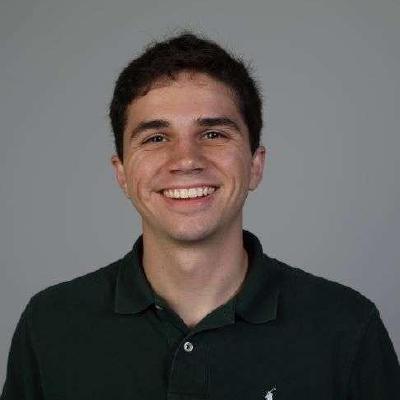About Me
Hello! I am the CSO at Veridise. We perform audits of zero knowledge (ZK) circuits and smart contracts, come check us out if you want an audit!
In my current role I handle timeline estimation, scheduling, and general audit management at Veridise. As I have time, I also perform audits!
I have audited AMMs, vaults, reward contracts, and more in EVM chains and NEAR. At Veridise, I have also gotten to work in many ZK applications, including identity systems, spam prevention, L1 blockchains, recursive provers, trusted machine learning, and more! This includes work in halo2, arkworks, gnark, o1js, and circom. I’ve also reviewed core key management infrastructure built using TEEs in AWS.
I used to work on the Vanguard team to help secure contracts and circuits programmatically.
I completed a M.S. in Computer Science at the University of Texas at Austin in December of 2022 studying Programming Languages in the UToPiA group under Dr. Işil Dillig. My time at UT was funded by the Department of Energy Computational Science Graduate Fellowship, where I was a 2020 fellow. While at UT, I researched program synthesis, verification, and analysis.
I finished a B.S. in Mathematics at Baylor University in May, 2020.
A Past Life: Research
Programming Languages
I worked to automate the implementation of certain concurrent programs from a declarative specification with Dr. Işil Dillig, Dr. James Bornholt, and Dr. Kostas Ferles.
Check out the paper here!
High Performance Computing
I worked with Dr. Samuel Williams and Dr. Hans Johansen in CRD at Lawrence Berkeley National Labs in the summer of 2021 (and throughout the year) on the Bricks project to help transform data layout (instead of code) for high-performance codes.
Check out the paper here.
Scientific Computing
At Baylor I worked with Dr. Robert Kirby on projects related to the Firedrake project, an open-source domain-specific language for computations using the finite element method. We worked with Dr. Andreas Kloeckner to integrate pytential into Firedrake so that we could use fast multipole methods to approximate boundary conditions at infinity on a truncated domain (see, for example, the Sommerfeld radiation condition for the Helmholtz equation).
Check out the paper here.
Other Things About Me
I like to run, read fantasy, sci-fi, history, philosophy, and anything else that is fun to talk about! I sometimes play Dungeons & Dragons, regularly play tennis, juggle when I can, love comedy, and spend a lot of my time with my two cats Iris and Hermes.
